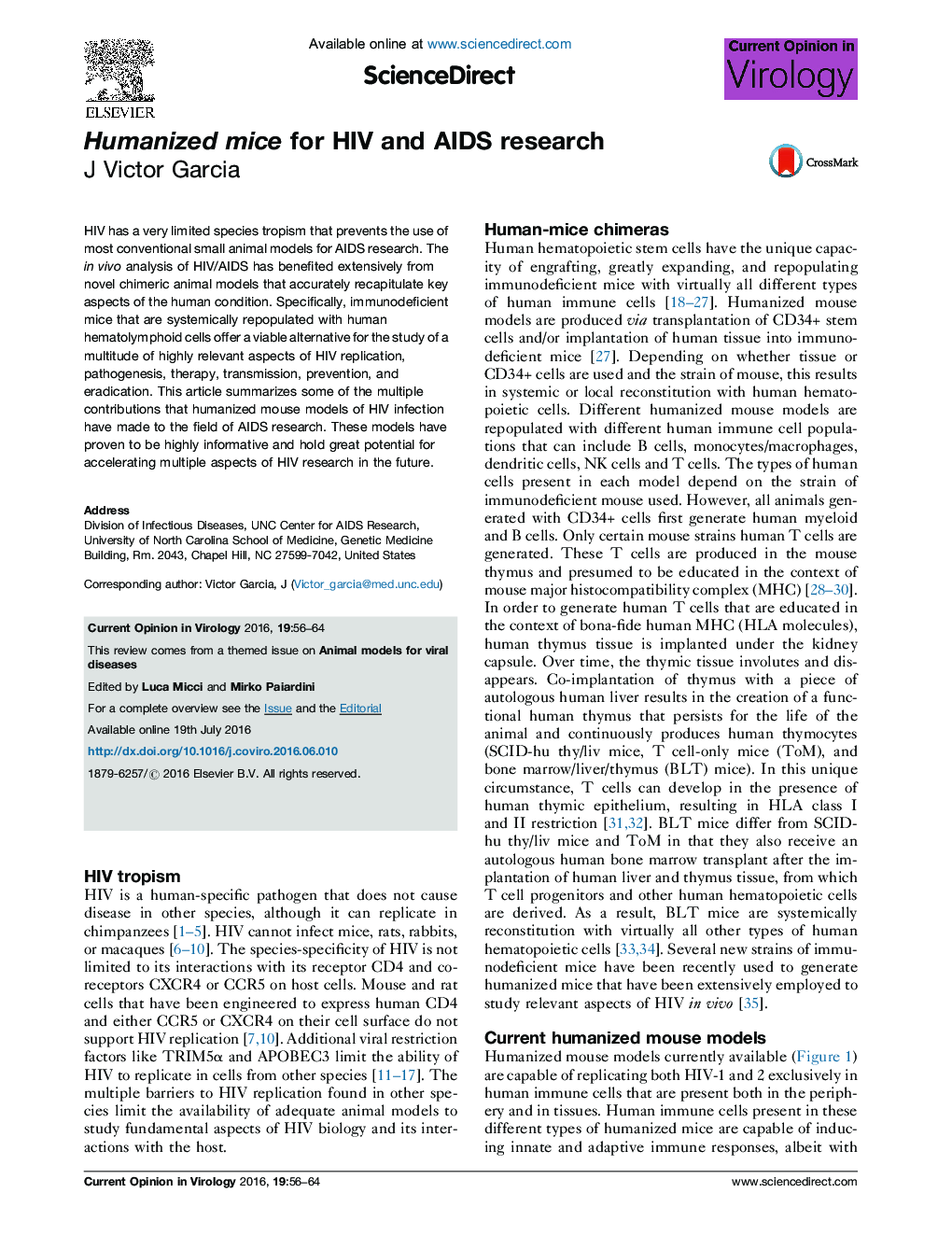| Article ID | Journal | Published Year | Pages | File Type |
|---|---|---|---|---|
| 2473187 | Current Opinion in Virology | 2016 | 9 Pages |
•HIV the causative agent of AIDS has an extremely limited tropism and does not replicate in mice, rats or non-human primates.•Humanized mouse models contain different components of the human hematolymphoid system that permit HIV replication in a small animal model.•Humanized mouse models like the T cell only mouse or the myeloid only mouse permit the analysis of key aspects of HIV biology in individual cell types.•The systemic reconstitution of humanized mice with human cells permits the detail in vivo analysis of HIV persistence and possible eradication approaches.
HIV has a very limited species tropism that prevents the use of most conventional small animal models for AIDS research. The in vivo analysis of HIV/AIDS has benefited extensively from novel chimeric animal models that accurately recapitulate key aspects of the human condition. Specifically, immunodeficient mice that are systemically repopulated with human hematolymphoid cells offer a viable alternative for the study of a multitude of highly relevant aspects of HIV replication, pathogenesis, therapy, transmission, prevention, and eradication. This article summarizes some of the multiple contributions that humanized mouse models of HIV infection have made to the field of AIDS research. These models have proven to be highly informative and hold great potential for accelerating multiple aspects of HIV research in the future.
